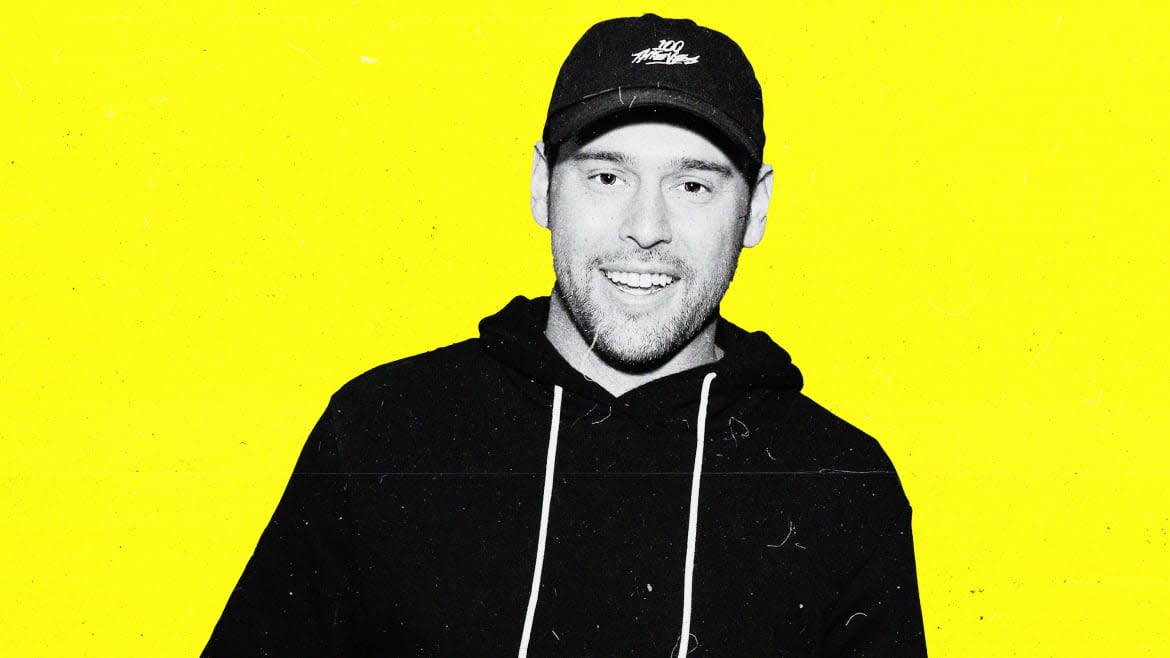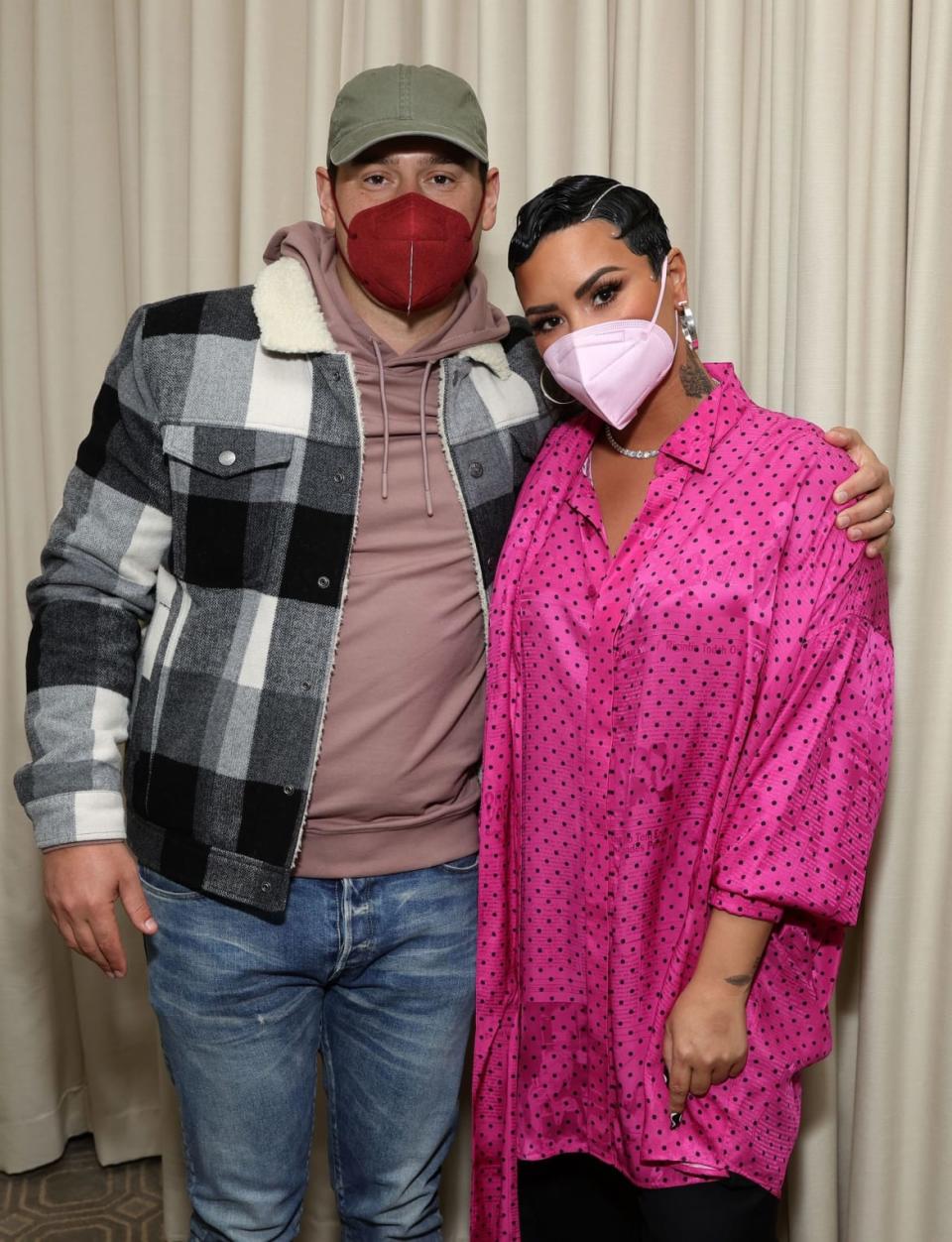Was Scooter Braun Ever the Elite Manager We Thought He Was?

- Oops!Something went wrong.Please try again later.
- Oops!Something went wrong.Please try again later.
- Oops!Something went wrong.Please try again later.
- Oops!Something went wrong.Please try again later.
- Oops!Something went wrong.Please try again later.
Scooter Braun is easily the most recognizable talent manager outside of Kris Jenner, with a list of clients The Other Two’s Brooke Dubek would kill for. In fact, he’s more famous than half his clients, despite the backstage nature you’d typically expect from someone with his position; he’s the rare celebrity handler who’s become a celebrity himself.
Achieving that feat took hustle and finesse. Braun was just 25 when he plucked a pre-teen Justin Bieber from obscurity and launched him into worldwide stardom. Over the years, he kept racking up A-list clients like Ariana Grande and Kanye West, while, as of this year, simultaneously serving as CEO of HYBE America, which houses megastar K-pop group BTS.
But the dominoes have fallen this week, with major clients including Grande, Demi Lovato, and J Balvin all dropping Braun; even Bieber is rumored to be looking for new management. As Braun’s career seemingly crumbles, it’s worth questioning: Was he ever the “it” manager we thought he was, or was it all just perception?
Ariana Grande, Demi Lovato Split With Manager Scooter Braun: Reports
Even with the undisputed success story of someone like Bieber (say what you want about the singer’s rocky reputation, his 150 million global album sales speak for themselves), Braun has struggled to recapture the magic that made him one of music’s most sought-after managers. Indeed, beyond Bieber and Grande lie a slew of pop stars whom Braun couldn’t get off the ground, or who seemed to flounder under his guidance.
Take, for instance, Idina Menzel. When news broke this week that she had dropped Braun back in January, the resounding response was: Wait, Scooter Braun managed Idina Menzel?! While her Broadway career and Frozen success are the stuff of legend, Menzel’s own music career under Braun stagnated. After signing him as her music manager in 2019, Menzel released just one album under his tenure, the holiday album Christmas: A Season of Love.
Since leaving Braun earlier this year, Menzel has already released a new album, Drama Queen, which arrived just days before her split from him became public. Drama Queen was marketed with semi-viral campy TikToks showing Menzel dancing awkwardly behind a gate, and while commenters have snarkily compared it to Old Navy music, that buzz is at least more than she got during her time with Braun.
Why Are Controversial Country Songs Dominating the Charts?
Of course, Braun’s squandering of Menzel’s talent only scratches the surface of his murky management track record.
The best example might be Carly Rae Jepsen, who signed with Braun after the massive success of her 2012 smash “Call Me Maybe.” A decade later, however, that hit still eclipses the pop star’s career, despite her “critical darling” status. After signing Jepsen, Braun told her to turn in a finished album in two months, she told Vulture in 2015. That album, Kiss, failed to make a major impact—it debuted at No. 6 on the Billboard 200 with just 46,000 units sold, while the rest of the singles trailed off.
If that wasn’t enough, Jepsen’s 2015 return, Emotion, sealed the deal for her as a commercially viable act. With the album earning critical success and spearheading Jepsen’s cult LGBTQ+ following, it had all the makings of a post-“Call Me Maybe” renaissance. And yet, the album’s lead single, “I Really Like You,” was criticized for hitting the same beats as its predecessor, and not even a star-studded music video featuring Bieber and Tom Hanks could get the single off the ground; the song peaked at No. 39 and, to this day, is her most recent song to chart in the U.S.
While Jepsen is still under Braun’s label, Schoolboy Records, she hasn’t been managed by him since 2016, a spokesperson told NPR. And although her follow-up albums have garnered modest acclaim—her most recent, The Loveliest Time, scored a “Best New Track” notice from Pitchfork—she has remained on the outskirts of the mainstream. Earlier this month, the New York Times labeled Jepsen a member of pop’s “middle class.”
Maybe that’s not Braun’s fault. After all, no manager is a miracle worker. But Jepsen isn’t his only one-hit wonder. After “Gangnam Style” blew up in 2012, Braun signed South Korean singer Psy to Schoolboy Records. If you’re thinking, “Oh, haven’t heard that name in a while!” perhaps that’s because “Gangnam Style” was the singer’s one and only hit in the U.S.
Braun’s impressive list of clientele isn’t necessarily proof of his business prowess, but his ability to be in the right place at the right time. When your client’s biggest hit is the song they released before you even signed them, as was the case for Psy and Jepsen, that’s an indictment on you. Braun’s perceived magic touch can thus read more like a kiss of death, squandering the momentum that made him sign his clients in the first place.
Beyoncé, Tumblr, and ‘Harlem Shake’: Revisiting Pop’s Most Pivotal Year
That seems to be the case for Lovato, who signed with Braun in 2019 for her much-awaited musical comeback following her near-fatal 2018 drug overdose. Having broken out as a Disney darling in the late 2000s, Lovato transformed into a formidable pop player with hits like “Heart Attack” and “Sorry Not Sorry” in the 2010s. And her 2017 album, Tell Me You Love Me, released two years before she signed with Braun, amassed critical acclaim and landed on year-end lists in Rolling Stone and Billboard.
But Lovato’s return was marred by a confusing rollout, beginning with the live debut of the ballad “Anyone” at the 2020 Grammy Awards and followed by a slew of shaky singles. She initially planned to drop her comeback album, Dancing with the Devil... the Art of Starting Over, that year, but delayed it due to COVID, she told Billboard. The album’s “official” lead single didn’t come until February 2021, and only mustered a spot on the Billboard Bubbling Under chart.
Even the Braun-synergy of a Lovato/Grande collab on Dancing With the Devil, “Met Him Last Night,” landed at a disappointing No. 61 on the Hot 100 and slipped off after two weeks. The album itself debuted at No. 2, while Lovato’s 2022 album Holy Fvck plummeted to a No. 7 debut. Only one song from Holy Fvck, “29,” charted, with a peak of No. 96. Whatever hype that existed for Lovato seems to be all but gone, and the former Disney starlet is now following Taylor Swift’s playbook with a set of re-recordings that’s set to drop next month.

Then there’s Tori Kelly, whom Braun started working with in 2013 after her stint on American Idol. She soon signed with Capitol Records and dropped her first studio album in 2015. And while singles like “Nobody Love,” “Should’ve Been Us,” and “Hollow” modestly charted, Kelly’s career ever since has been hazy, to say the least.
For her second album, Kelly shifted toward gospel music, a move that didn’t fare well commercially, but did earn her a Grammy Award. Her third album in 2019 failed to hit either the commercial high of the first or critical high of the second, however, barely scraping the Billboard 200 with a peak at No. 97. In 2020, Kelly released a Christmas album, and has since switched to Epic Records, while still under Braun’s management. She dropped an EP in July, Tori, which doesn’t even have a Wikipedia page.
Further in the weeds of Braun’s unwatered garden, there’s Ava Max, who signed with Braun ahead of her 2023 sophomore album, Diamonds & Dancefloors. The album landed with a quiet debut in the U.S., and none of the singles came close to the heights of prior semi-hits “Sweet But Psycho” or “Kings & Queens.” (That said, she did score a coveted slot on the Barbie soundtrack.)
Taylor Swift Delivers Big F-You to Scooter Braun With Re-Recorded ‘Love Story’
Braun’s most severe misfire, though, may be the indirect backlash his clients felt following his purchase of Swift’s master recordings in 2019. As Braun’s reputation came under fire and garnered more headlines than the majority of his clients do on their own, he became a liability as he was painted by many corners of the internet as the music industry’s biggest villain. Meanwhile, Swift’s re-recordings—done as a direct response to the sale of her masters—have not only been a major victory lap commercially, but she’s comfortably come out on top in the court of public opinion, with her “Taylor’s Version” albums representing not only fierce advocacy for Swift, but also admonishment of the “big bad” that is Braun. How many people even know that Braun doesn’t even own her masters anymore after he sold them for a profit in 2020? It doesn’t matter; the damage is done.
As rumors swirl that Braun’s now moving away from management entirely—whether by choice or not—it’s hard to feel worried for the clients left behind. Braun’s long list of failed artists proves he no longer has the pop music midas touch. Maybe he never did.
After all, Braun will still be infamous for his rollercoaster career once the dust settles, while the artists he mismanaged continue to fade into obscurity. Maybe the goal never was to make them stars—maybe it was all about making Scooter Braun the star.
Get the Daily Beast's biggest scoops and scandals delivered right to your inbox. Sign up now.
Stay informed and gain unlimited access to the Daily Beast's unmatched reporting. Subscribe now.

